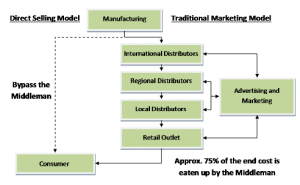After our recent lecture on social enterprises and non-profit organization, where we looked briefly into micro-financing organizations, I was curious to find out more about micro-financing. After reading the article “The ugly underbelly of Micro finance” from the newspaper Times of India I got a negative view regarding micro-financing firms.
Micro-financing allows loans to be borrowed at minimal interest rates, which the conventional banks do not offer, making it affordable for the poor people to borrow money in order to start any kind of businesses.
In the recent years though, micro-finance has come under lots of criticism. People associated with this sector feel that microfinance institutions have exploited them with high interest rates, same as those charged by any banks moneylenders”. Some institutions, while offering loans often quote “flat” rates of interest, which, implies that even after the borrower has paid a few installments, the interest would still be calculated on the initial sum borrowed, and not on the balance loan amount. Eventually, the final interest rate turns out to be much higher than what was initially given at.
Thus, I urge people to think over twice before borrowing from such organizations as it is high likely that they might end up paying more interest than they would have had, if they had borrowed from a normal bank.


